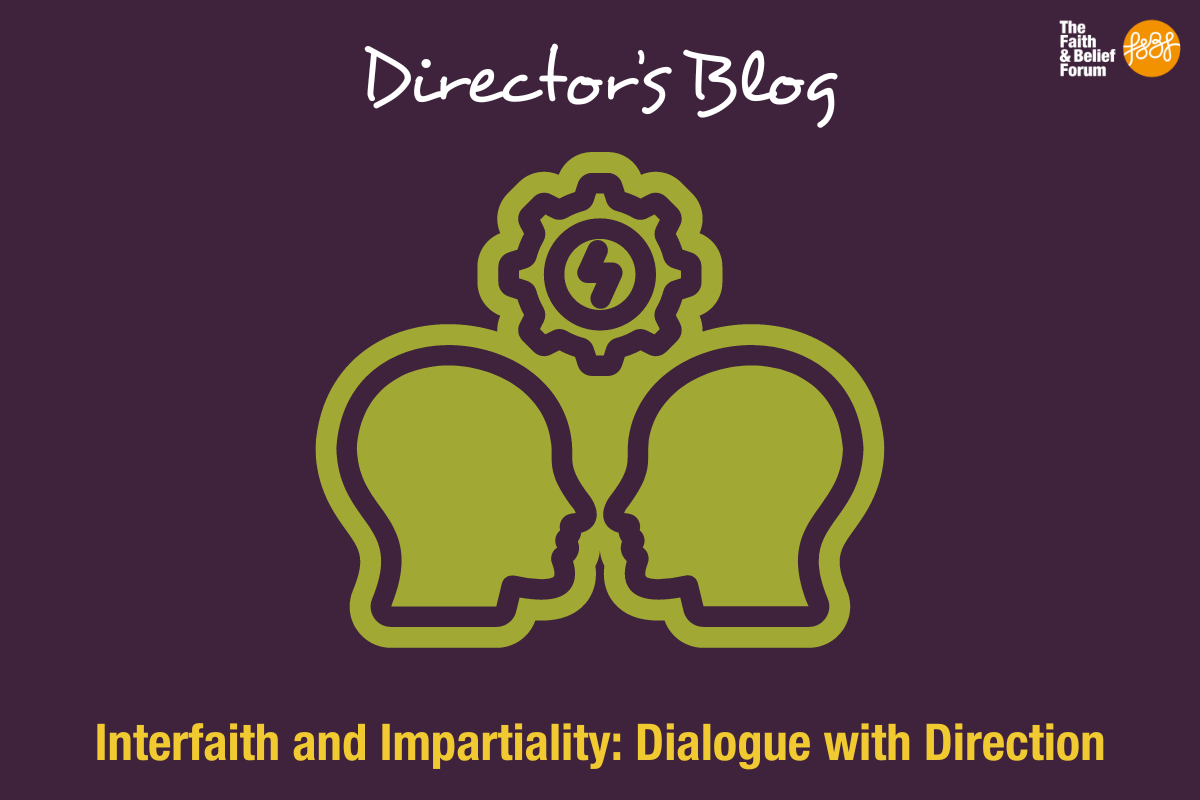
Statement on Hate Crime in UK – 19th February 2024
19 / 02 / 24
Menu

20 / 04 / 21

By Josh Cass, F&BF Development & Fundraising Manger
It is a truism which bears repeating: interfaith programming creates spaces where people can open up and talk about how their faith or belief shapes how they see and engage with the world. Some interfaith processes will take a theological approach, focusing on sacred texts or theological ideas and principles as the landscape on which a conversation will take place. Other interfaith processes take approaches which can be described as being about the lived reality of faith, honing in on how this particular element of ones identity intersects and interplays with other elements, such as gender, sexuality or race. Some people refer to this approach as being “intersectional” in that the process intentionally explores those areas where different elements of a person’s identity overlaps.
We all have multiple elements to our identities: different roles which we play at different times. The challenge for every one of us is how we live those different identities in the various contexts and situations which we find ourselves in at different times. For me, this is the exciting thing about interfaith programming – this active consideration of identity and context forces us to think about times when we are authentically ourselves, and to consider the power imbalances or barriers which may be preventing that greater level of authenticity. For me, too often questions of religious identity and belief are excluded from such considerations, or if they are included, they are seen predominantly as factors preventing a person from flourishing. Think about the narratives around the intersection of faith and gender or sexuality and more often than not the narrative is about how faith prevents the flourishing of other parts of identity. While that is certainly true, increasingly people are finding new ways to live, and live together in communities which are defined and developed through the lens of those intersections. Communities which enable a full exploration and open expression of parts of identity which are seemingly in tension with each other.
I was thinking about these distinctive approaches as I was chairing the final Freedom of Religion or Belief in Practice Conversation. Intersectional approaches to Freedom of Religion or Belief (FoRB) programming had come up in that and earlier conversations, however during this conversation one participant talked about the idea of accommodation. For them, FoRB and the ideas captured by this particular right, exist independent of other rights and should not be understood through the way that different individuals and groups experience FoRB by virtue of other elements of their identity. Rather the participant reflected that an understanding of how religion and religious identity shapes societies in profound and significant ways was necessary. They went on to suggest that one needs an appreciation and awareness of the imprint of religion on a society if one is to think about implementing an intervention designed to promote or protect FoRB in practice. Further, that those interventions need to be rooted in the religious language of that society and to present a methodology which implements FoRB goals in which is contextually rooted.
For me, this tension, between practices of FoRB which seek accommodation with other Rights and practices which work in the intersections, is reflective of the tension which I as an interfaith professional grapple with all the time. That tension is a useful reminder for me of the options which I have when developing new interventions; I need to be sensitive to the possibility that different approaches are needed in different situations. That is hardly a surprising thing to say; however, there is something about both approaches which I am always keen to hold onto. For me, the intersectional approach requires me to consider the question of power, and by extension powerlessness, in interfaith settings. This is vital if the spaces I convene are to be as inclusive as I would want them. And the accommodating approach forces me to be humble and to work harder to understand context, particularly how religion and religious practice shapes the experiences of those with whom I wish to work. To me, these are critical points and ones which I try to build into my practice as an interfaith professional. How these points translate practically into FoRB programming, and with what impact, I can not say, but I look forward to working with colleagues to find out!

19 / 02 / 24

16 / 02 / 24

15 / 02 / 24